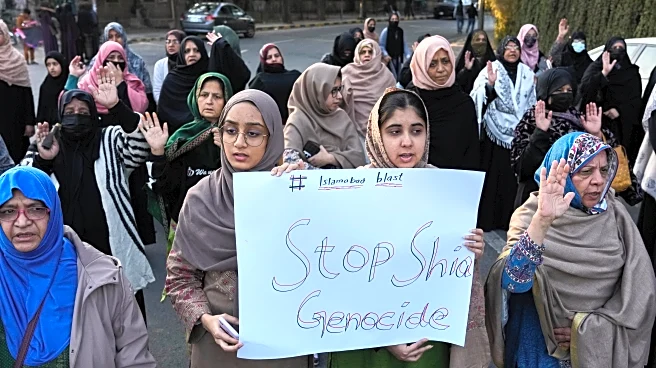Rapid Read • 8 min read
Iran has executed two members of the banned group Mujahideen-e-Khalq (MEK) for allegedly targeting infrastructure. The MEK, known as the People's Mujahideen Organization of Iran, has a history of opposition to the Iranian government, dating back to its activities against the shah's regime in the 1970s. The group was previously designated as a terrorist organization by the United States and the European Union until 2012. The executions come amidst heightened tensions, with Iran accusing opposition groups like MEK of supporting Israel during recent conflicts. The MEK's leadership is currently based in Paris, continuing its opposition to the Islamic Republic.
AD
The execution of MEK members highlights ongoing tensions between Iran and opposition groups, which have implications for regional stability and international relations. The MEK's history of conflict with the Iranian government and its previous designation as a terrorist organization underscore the complex dynamics at play. This development may affect diplomatic relations, particularly with countries that have previously engaged with the MEK. Additionally, it raises concerns about human rights and the treatment of political dissidents in Iran, potentially influencing international human rights advocacy and policy decisions.
The executions may lead to increased scrutiny from international human rights organizations and could impact Iran's diplomatic relations with Western countries. The MEK's leadership in exile may seek to leverage this incident to garner support and attention from global entities. Iran's actions could provoke responses from countries involved in Middle Eastern politics, potentially affecting negotiations and alliances. Observers will be watching for any further actions by Iran against opposition groups and the international community's response.
The execution of MEK members may have deeper implications for Iran's internal politics and its approach to dissent. It reflects the government's stance on maintaining control and suppressing opposition, which could influence domestic policy and civil liberties. The incident also highlights the challenges faced by opposition groups in exile, as they navigate international support and advocacy while confronting the realities of their home country's policies.
AD
More Stories You Might Enjoy












